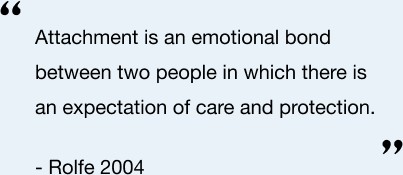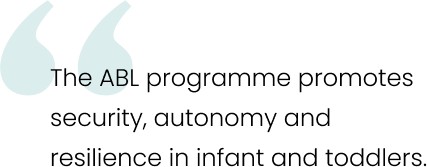Attachment Based Learning (ABL) | ||
The ABL programme was designed and developed in this centre around Te Whariki (New Zealand’s Early Childhood Curriculum). It is an Infant and Toddler programme based on the importance of reciprocal relationships between the members of a learning community. The programme aims to foster high quality relationships in order to establish secure attachments for infants and toddlers. What a child learns in early relationships can be the basis for subsequent relationships, so we intentionally promote the formation of responsive, reciprocal relationships in order to provide a secure base for children’s learning and development.
| Key Benefits of
| |
.jpg) |  |
Following The Child’s Lead | ||
Every baby is born with unlimited potential and infinite curiosity. They are also intrinsically motivated and crave understanding about themselves and the world around them. Infants and toddlers need opportunities to explore discover, experiment and move freely, learning in their own way, in their own time and space. With this in mind we have developed practices to support the natural development of infant and toddler movement. We choose not to provide highchairs or other containment devices. If a baby or toddler is unable to get themselves in to or out of a particular position then their bodies and muscles are simply not ready. We don't prop babies, and we don't 'teach' milestones, we let the infant/toddler develop at their own pace. Individual children's needs are always considered and as some medical conditions are exacerbated by laying flat or not being propped we will always practice what is in the best interest of the individual. | Key Benefits of "An infant who is free to move his body toward an object he wants is self-rewarded by a feeling of mastery and develops a can-do attitude toward life that spills over to the social, emotional and cognitive realms." - Dr Emmi Pikler | |

